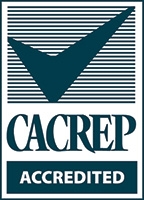School Counseling (Online) Advising Guide


Master of Education (M.Ed.)
- Meet the Director, Dr. Summer Kuba
- View information for CACREP accreditation
Requirements
- No teaching license required for internship
- Two years of teaching or counseling experience required for Virginia licensure
- Might be acquired during the M.Ed. program
- Might be acquired while employed as a school counselor with a provisional license
- Required Intensives/Synchronous Courses: (A or J term)
- Counseling Theories & Techniques (COSC 505)
- Structured Groups (COCS 512)
- Field experiences, practicum, and internship
- All M.Ed. in School Counseling candidates take the Praxis® Professional School Counselor examination (0421 or 5421 or 5422). Candidates may submit scores for their state’s equivalency test in place of the Praxis® 0421 or 5421 or 5422. If the candidate’s state does not have an equivalent, then the candidate must complete the Praxis® 0421 or 5421 or 5422. This comprehensive specialty examination is a requirement for Gate 3 and graduation. Candidates must provide proof that they have taken the Praxis® exam prior to being issued the Gate 3 code and enrollment in internship (COSC 699/COSC 693). Candidates should consider taking the exam in the semester immediately prior to Internship 1. Currently, there is no required minimum score for the school counseling program, but other states may have a minimum required passing score for licensure. The purpose of this exam is to assess the candidate’s knowledge specific to the specialty of counseling in K-12 schools. The timed (two hour) exam covers competencies of the Council for the Accreditation of Counseling and Related Educational Programs (CACREP®), as defined by their School Counseling Specialty Standards for Preparation. The test is designed to mirror the four quadrants of the American School Counselor Association (ASCA) National Model. The four subtests of the Praxis® School counselor exam, which consists of 120 multiple choice items, are:
- Assess: Specifics on program assessment and school counselor assessment and appraisal.
- Deliver: Specifics on direct and indirect services.
- Define: Specifics on candidate standards and professional standards
- Manage: Specifics on program focus and program planning
For information, exam costs, and to register for the exam, candidates should go to the link above. There you will find a link to the Praxis® Study Companion. Another good resource for preparation is The School Counselor’s Desk Reference and Credentialing Examination Study Guide developed by Dr. Schellenberg (2018, Routledge Publishing). It covers the content needed for the Praxis® exam and other school counseling specialty exams, providing study tips, case studies, and practice exams.
Practicum & Internship Information
The practicum and internship field experience courses promote the candidate’s learning by practicing the theories and techniques learned in the classroom and apply them in a real work setting, under the supervision of a licensed school counselor. Experiential learning is vital to school counseling skills development and the development of professional practice skills. The practicum and internship portion of the school counseling program is required of all candidates seeking state licensure/certification as a professional school counselor.
View information, application processes, and course requirements for the school counseling practicum here: https://www.liberty.edu/behavioral-sciences/counselor-ed/masters/school-counseling-med-practicum-edce-698/
View information, application processes, and course requirements for the school counseling internship here: https://www.liberty.edu/behavioral-sciences/counselor-ed/masters/school-counseling-med-internship-edce-699/
Program Materials
Program Information & Orientation
- Degree Completion Plan and Course Sequencing Guide (PDF)
- School Counseling Program Handbook (PDF)
- School Counseling Practicum Manual (PDF)
- School Counseling Internship Manual (PDF)
Practicum
- Pre Advanced Internship Assessment (PRE AIA) pdf
- Pre-Advanced Internship Assessment Site Supervisor Training (video)
- School Counseling Cumulative Field Experience Summary (PDF)
Internship
- Advanced Internship Assessment (AIA) pdf
- Advanced Internship Assessment (AIA) Site Supervisor Scorer Training (video)
- School Counseling Cumulative Field Experience Summary (PDF)
Resources
- Admissions Requirements
- Library Resource Guide pdf
- Course Catalog for Academic Information and Policies
- Licensure Information
- Transfer Policies
- Academic Advising and Course Registration
- Academic Calendar
- APA Format
- Canvas Tutorial
- Graduate Catalog
- Graduate and Online Community Life
- Graduate School homepage
- IT Helpdesk
- Jerry Falwell Library
- Online Honor Code
- Online Writing Center
- Student Software
- Policy Directory
- Black History Month newsletters
- Tuition, Fees, and Financial Aid